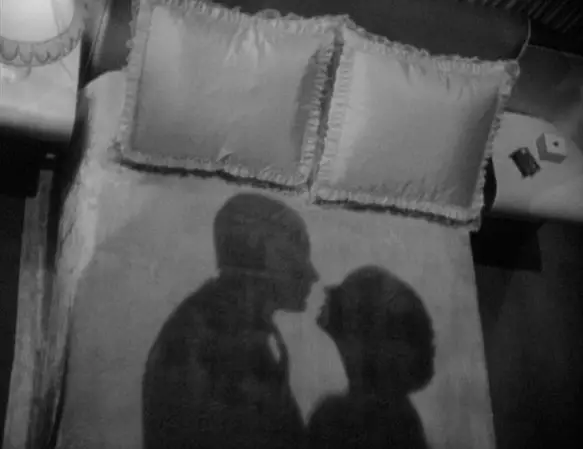
Director: Ernst Lubitsch
Producer: Ernst Lubitsch
Writers: Samson Raphaelson, Grover Jones (screenplay), Aladar Laszlo (play)
Photography: Victor Milner
Music: W. Franke Harling
Cast: Miriam Hopkins, Kay Francis, Herbert Marshall, Charles Ruggles, Edward Everett Horton, C. Aubrey Smith, Robert Greig
![]()
“Marriage is a beautiful mistake which two people make together… But with you, Francois, I think it would be a mistake.”
Throughout film history, few directors have earned their own phraseology, be it “Hitchcockian” to denote Alfred Hitchcock’s penchant for character-driven suspense, “Fellinian” to define Federico Fellini’s bizarre surrealism, or “Capra-corn” to describe Frank Capra’s feel-good formula. Just as renowned among critics, yet lesser known to the mainstream public, is “The Lubitsch Touch,” classifying the genius of director Ernst Lubitsch, who single-handedly invented the romantic comedy, first in his native Germany, then during the dawn of the Hollywood sound era.
Legendary French director Jean Renoir (The Rules of the Game) goes as far as crediting Lubitsch with inventing modern Hollywood. (A) Equal credit belongs to Lubitsch’s first and favorite American collaborator, writer Samson Raphaelson, with whom he worked on nine occasions, most famously the two they adapted from Hungarian Laszlo plays, Trouble in Paradise (1932), Lubitsch’s first in America, and The Shop Around the Corner (1940), which would be remade by Nora Ephron as You’ve Got Mail (1998).
Boasting a sophisticated script and an auteur directorial style, Trouble in Paradise may be the greatest of all Lubitsch pictures. Opening in Venice, the film introduces world-famous thief Gaston Monescu (Herbert Marshall), who makes a living robbing high society types, the latest of whom turns out to be his cunning equal and possible soul mate, Lily (Miriam Hopkins), a crafty pickpocket posing as a countess.
Immediately, both are turned on by the other’s expertise in thievery, making for some amusing exchanges in which both reveal items they’ve stolen from one another. It’s the same sort of con-artist romance that Christian Bale and Amy Adams portrayed in American Hustle (2013). Soon, Gaston and Lily are collaborating on the ultimate heist, to rob the safe of Parisian widow and perfume company head Mariette Colet (Kay Francis).
The conflict emerges when Gaston falls for the beautiful Mariette, endangering both the plan and his relationship with Lily, who begins to suspect his love affair and rightfully burns with jealousy. Most hurt is Mariette, the innocent bystander looking for love and thinking she’s found it, only to find she has been the subject of a robbery.
This intriguing yarn was the product of Aladar Laszlo’s play The Honest Finder, but its biting resonance today owes much credit to screenwriters Grover Jones and Samuel Raphaelson, who turned it into one of the smartest scripts ever written. Each page is written poetry — “The famous international crook Gaston Monescu robbed the peace conference yesterday. He took practically everything except the peace” — lined with a subterranean wit that further reveals itself on repeat viewings.
If innuendo is your thing, look no further than Trouble in Paradise, where sly allusions come at breakneck speed and sex is just “a little game which you play tonight and forget tomorrow.” To Raphaelson and Jones, going “down to the living room to talk it over” means more for the lips than talking, and “when a lady takes her jewels off in a gentleman’s room” they should most definitely find their way to the night table.
Urging this innuendo throughout, and indeed materializing it, is Lubitsch, who from the very beginning uses slick directorial touches to the nurse the libido. The opening credits follow the words “Trouble in…” with the image of a bed, offering an alternate reading of the title — “Trouble in Bed” — before the word “Paradise” even appears. This mastery of the medium continues throughout, prompting such heralded directors as Orson Welles to say, “Lubitsch was a giant … his talent and originality were stupefying.” (B)
Just look at the original ways he uses his camera to tell his story — positioning his camera outside a building and panning from window to window, Rear Window style; converting his camera into subjective binoculars to project Monescu’s targeting of a purse to snatch; or fading from a shot of a busy room to an identical shot of that same room empty. These techniques are not merely done to “look cool,” but to serve a narrative purpose, fading from Lily and Monescu making out on the sofa to a shot of that same sofa, now empty, followed by a door cracking open just long enough for a hand to hang a “Do Not Disturb” sign.
While so many of today’s films insist on showy graphic sex scenes, Lubitsch proves that directorial innuendo is all the more steamy, most famously in his Trouble in Paradise clock sequence, keeping his camera fixed on the face of a clock, fading in and out from 5 p.m. to 2 a.m., while the actors’ voiceover leaves the unseen action to the imagination.
Trouble in Paradise was insanely ahead of its time, getting away with more sexual references than most films of its day, seeing as it was released just before the Hays Code began censoring films in 1932. Such may also be the reason why the film disappeared from pop culture after the Code came into effect. But it’s one each and every one of us should go back and rediscover.
“That it has been forgotten is a crime,” says director Peter Bogdonovich. “It’s a lost treasure … it’s like finding gold.” (A)
![]()
Citations:
CITE A: Trouble in Paradise Criterion Collection DVD intro, narrated by Peter Bogdonovich
CITE B: Trouble in Paradise Criterion Collection DVD menu link: “Tribute to Ernst Lubitsch”
